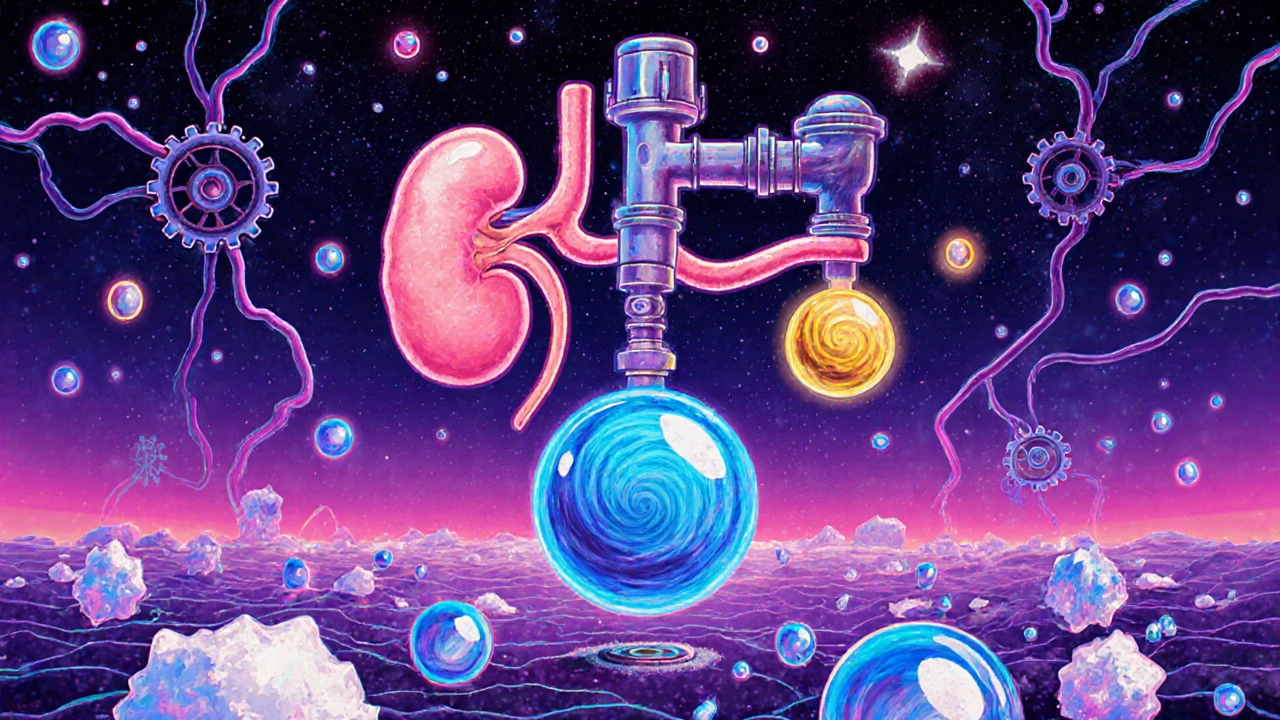Hyponatremia: Causes, Risks, and How Medications Affect Sodium Levels
When your blood sodium drops too low, you have hyponatremia, a condition where sodium levels fall below 135 mEq/L, disrupting fluid balance and nerve function. It's not just about drinking too much water—it's often tied to medications, kidney problems, or hormonal imbalances that mess with how your body holds onto salt. Many people don’t realize their blood pressure pills, antidepressants, or diuretics could be quietly pulling sodium out of their system.
Diuretics, drugs that make you pee more to reduce fluid buildup are one of the most common culprits. Especially loop diuretics like furosemide, often used for heart failure or chronic kidney disease, a condition where kidneys can’t properly filter fluids and electrolytes. These drugs flush out sodium, but if you’re replacing lost fluids with plain water instead of electrolyte-balanced drinks, your sodium gets diluted. That’s when symptoms like confusion, nausea, or even seizures can show up.
It’s not just diuretics. Some antidepressants, like SSRIs, can trigger a hormone called ADH to go haywire, making your body hold onto water when it shouldn’t. This is called SIADH—syndrome of inappropriate antidiuretic hormone secretion. And if you’re taking medications like hyponatremia-inducing drugs for epilepsy or pain, you’re already walking a tightrope. Even something as simple as overdoing endurance sports without proper electrolyte replacement can trigger it.
What makes hyponatremia tricky is how silent it can be. You might feel fine until your brain starts swelling from too much water. Older adults, people with heart or kidney disease, and those on multiple medications are at highest risk. The good news? It’s often reversible once you find the cause. But you need to know what to look for—and which drugs to question with your pharmacist.
The posts below dig into exactly that. You’ll find real-world examples of how common meds like diuretics, antidepressants, and even antibiotics can throw sodium levels off balance. You’ll see how kidney disease ties into fluid retention and why salt restriction isn’t always the answer. And you’ll learn what to ask your doctor before you keep taking a pill that might be silently lowering your sodium.
Hyponatremia and Hypernatremia in Kidney Disease: What You Need to Know
Hyponatremia and hypernatremia are dangerous sodium imbalances common in kidney disease. Learn how reduced kidney function causes them, why standard treatments can backfire, and what actually works to stay safe.





